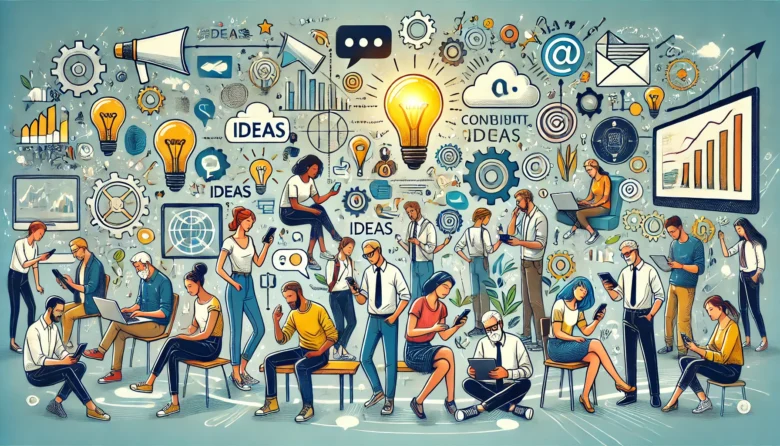In today’s interconnected world, the crowd’s power is harnessed in remarkable ways. This blog post, titled “Crowdsourcing and Collective Intelligence: The Sociology of Collaborative Problem-Solving,” delves into how people in India and around the globe use crowdsourcing and collective intelligence to tackle complex issues and innovate together.
What is Crowdsourcing?
Crowdsourcing involves gathering ideas, services, or content by inviting contributions from a large group, often through the Internet. This method leverages the crowd’s collective intelligence and diverse perspectives to solve problems, generate ideas, or gather information.

The Power of Collective Intelligence
Collective intelligence is the combined knowledge that arises from the collaboration and interaction of multiple individuals. It relies on the idea that a group can often solve problems more effectively than a single person.
The Sociological Perspective
From a sociological standpoint, crowdsourcing and collective intelligence are fascinating phenomena. They showcase how communities unite, using their varied skills and knowledge to tackle common issues. This is particularly relevant in India, given the country’s vast and diverse population.
Real-World Examples
Digital India Initiative
The Digital India Initiative, introduced by the Government of India, seeks to turn the nation into a digitally empowered society. Through crowdsourcing, the initiative gathers citizens’ ideas on improving digital infrastructure and services.
MyGov Platform
MyGov is an innovative platform launched by the Government of India to promote citizen engagement. It allows people to participate in governance by sharing their opinions, participating in polls, and suggesting solutions to various problems.
Benefits of Crowdsourcing
Diverse Perspectives: Crowdsourcing taps into various viewpoints, leading to more innovative solutions.
Cost-Effective: It reduces costs associated with hiring experts by leveraging the knowledge of the crowd.
Speed: Crowdsourcing can accelerate problem-solving by engaging many contributors simultaneously.
Challenges and Solutions
Although crowdsourcing has many advantages, it also presents challenges like maintaining the quality of contributions and handling large amounts of data. However, these can be mitigated through effective moderation, clear guidelines, and advanced data management tools.
The Future of Collaborative Problem-Solving in India
With ongoing technological advancements, the potential for crowdsourcing and collective intelligence in India is vast. From addressing local community issues to contributing to national initiatives, the power of the crowd can drive significant change.
Conclusion
Crowdsourcing and collective intelligence represent the future of collaborative problem-solving. By harnessing the collective power of people, we can tackle complex challenges, foster innovation, and build a better society.
Author’s Note:
Thank you for reading this blog. It provides a better understanding of how crowdsourcing and collective intelligence can impact our society. Feel free to share your thoughts and experiences in the comments below.
G.C., Ecosociosphere contributor.




